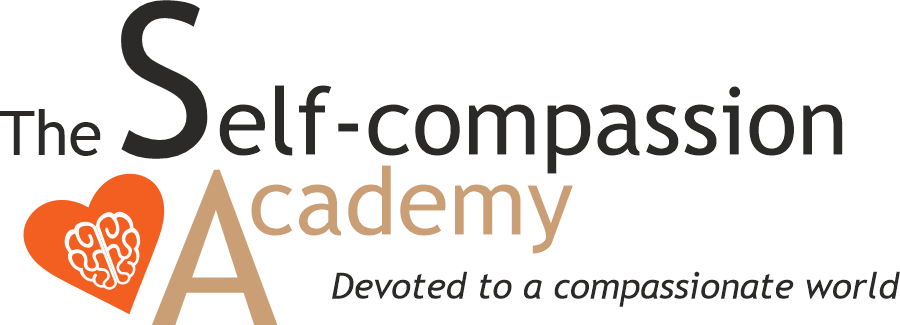Self-compassion is not the same as self-confidence or self-assurance. And it’s certainly not self-pity. These concepts all revolve around how you think about yourself. Self-compassion, however, is about how you treat yourself: whether you have compassion for yourself and are kind and understanding toward your thoughts and feelings.
What Is Self-Compassion?
Kristin Neff, professor of psychology at the University of Texas and a pioneer in the field of self-compassion, defines self-compassion as treating yourself the same way you would treat a loved one—even when they make a mistake or do something ‘foolish.’
Self-compassion means accepting that you are human and that you will make mistakes. It means not tearing yourself down or getting angry at yourself for being imperfect.
Self-Compassion According to Kristin Neff
Kristin Neff was the first in the world to conduct scientific research on self-compassion. Her studies identified the core components of self-compassion. Alongside Chris Germer, a clinical psychologist and lecturer at Harvard Medical School, she developed practical exercises and meditations to cultivate self-compassion skills. Also, she created the Self-Compassion Scales and is author of several books about self-compassion.
She identifies three key components of self-compassion:
- Kindness: Treating yourself with the same kindness and care you would offer a loved one.
- Common humanity: Recognizing that being human means being imperfect.
- Mindfulness: Not being swept away by self-criticism and feelings of inadequacy.
But what do these components really mean in practice?
1. Kindness
This means being kind to yourself (rather than self-critical) when things don’t go as planned. It involves recognizing that no one leads a perfect life. What matters is how you handle your imperfections. Do you berate yourself for making mistakes, just like every other human? Do you take it personally when you fail or when someone treats you unkindly? Do you feel like you’re not okay as a person when these things happen? If so, your inner critic is overly active, and you’re suffering more than necessary.
You’re not just dealing with what went wrong, you’re also dealing with the fact that you’re being harsh on yourself for it. If a close friend made a mistake, would you berate them? Chances are, you would be understanding, supportive, and encouraging. Self-compassion means extending that same understanding, support, and encouragement to yourself.
2. Common Humanity
Even though you intellectually understand that nobody is perfect, this understanding often disappears when you look at your own life. When you make mistakes or fail, you might blame yourself. When you feel unhappy, anxious, or sad, you may think something is wrong with you. You might fall into self-reproach, as if you should have total control over everything.
But making poor choices, doing foolish things, failing, and experiencing sadness or anxiety are inevitable parts of being human. They are part of life. Yet, we often believe we are the only ones struggling and feel isolated in our suffering. In reality, these experiences are what connect us to the rest of humanity.
Recognizing that imperfection is part of being human is liberating. It doesn’t mean you should stop striving or improving; it simply means that having bad experiences doesn’t make you a bad person, it makes you human.
Whatever you experience, feel, or think, there are always others who are going through the same thing. Realizing this helps you feel more connected to others, precisely because of your imperfections. This, in turn, creates space for growth and learning. Self-reproach stifles growth.
3. Mindfulness
Mindfulness means being aware of your experiences as they unfold. It also means being willing to acknowledge difficult experiences, which can be challenging. We often prefer to avoid unpleasant feelings, pain, and discomfort, rushing to fix problems right away. But if you refuse to face your own experiences, you won’t be able to find solutions either.
Mindfulness is always accompanied by action. After noticing and accepting your experience, the next question is: What can I do now that I’m feeling this way? Sometimes, the answer is simply to be kind and caring toward yourself because the situation is painful or difficult. And not everything can be instantly solved.
Mindfulness also helps you recognize your inner critic, that voice that constantly judges, criticizes, and demands perfection. This voice is often so ingrained that it’s hard to recognize. But once you become aware of it, you can begin to counter it with a compassionate voice.
Why Is Self-Compassion Important?
For many people, the inner critic is the loudest voice in their heads. As long as you meet your own high standards, everything seems fine. But when life gets tough (which it inevitably does), that inner critic becomes a burden, making things twice as hard. Instead of offering yourself support in difficult times, you pile on self-criticism.
Research by Neff shows that people who practice self-compassion are more resilient and emotionally balanced. They can look at themselves with kindness and understanding, even in tough times. This reduces stress, helps them handle setbacks constructively, fosters calmness, and empowers them to pursue change.
How self-compassionate are you? Kristin Neff has developed a test to measure your level of self-compassion.
How to Practice Self-Compassion
Self-compassion is a skill you can develop through practice. One of the first steps is learning to recognize your critical inner voice:
- Observe the words, images, or feelings that arise when you hear your critical voice. This voice may feel true and deeply ingrained, but it is merely a learned form of self-talk. A little devil whispering in your ear, unseen but heard.
- If you notice that your inner dialogue is unkind, pause for a moment, take a deep breath, and ask yourself: what would I say to a good friend? Then try to extend the same care and understanding to yourself.
Try this: 5 Mindful Exercises for More Self-Compassion
Credits image: Roman Odintsov via Pexels







